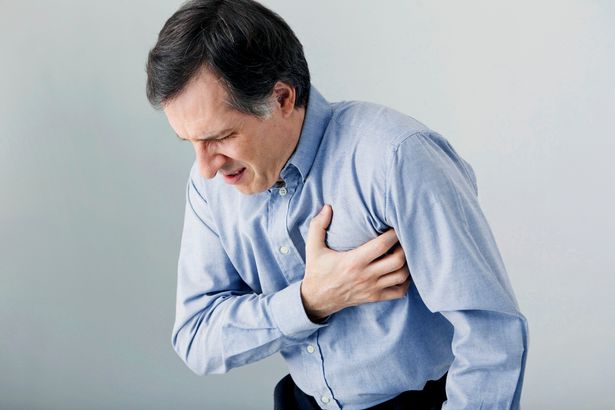Watch those stress levels tomorrow – 10pm on Christmas Eve is the most likely time for a heart attack.
Researchers trawled through details of 283,000 heart attacks between 1998 and 2013 to find out what days were most lethal.
While an average of 50 heart attacks were recorded every day, that number climbed to 69 on Christmas Eve, the British Medical Journal reported.
The Swedish study suggests heightened emotions and an increase in flu, particularly in 65-year-olds with pre-existing heart conditions, were among the triggers.
But don’t despair, as heart attacks – when blood flow to the heart is blocked – can be avoided by managing the risk factors.

It is also possible to survive one and regain good health by getting the right treatment fast.
Here are some tips from the British Heart Foundation.
Recognise the flags
Although a common sign is pain or discomfort in your chest that suddenly occurs and does not go away, this is not always thecase.
It is still possible to have a heart attack without this classic chest pain.
This is more common in the elderly, women, or those with diabetes, as the condition can cause nerve damage which effects how you feel pain. The pain may spread to your left or right arm or to your neck, jaw, back or stomach. For some people the pain or tightness is severe, while other people just feel uncomfortable.
Women may have different symptoms to men, with more nausea, dizziness and anxiety.
During a heart attack there is also a risk of cardiac arrest –where the heart stops pumping and normal breathing stops. If someone is in cardiac arrest they will be unconscious and need CPR immediately.
Go to the British Heart Foundation website for a step-by-step guide and to watch its CPR training video.
Act quickly

Speed of reaction is absolutely critical to surviving a heart attack and going on to regain good health.
If unexplained chest pain lasts for more than a few minutes, do not delay, do not try to figure out the cause, call 999 and state you are dealing with a suspected heart attack.
Stay still
If you are having a heart attack, sit and rest while you wait for the ambulance. Do not get up and look around for aspirin as this may put unnecessary strain on your heart.
Chew an adult aspirin tablet – 300mg – if one is easily available, unless you are allergic to aspirin or you have been told not to take it.
If you are not sure whether you are allergic, just stay resting. If possible, get someone else to open the door for the paramedics when they arrive.
Understand the risks
If you are aged 40-74, ask your doctor or nurse for a heart health check to assess your risk of having a heart attack in the next ten years.
If you have diabetes, high cholesterol or hypertension, then you have a far higher risk of heart problems.
More details at bhf.org.uk
